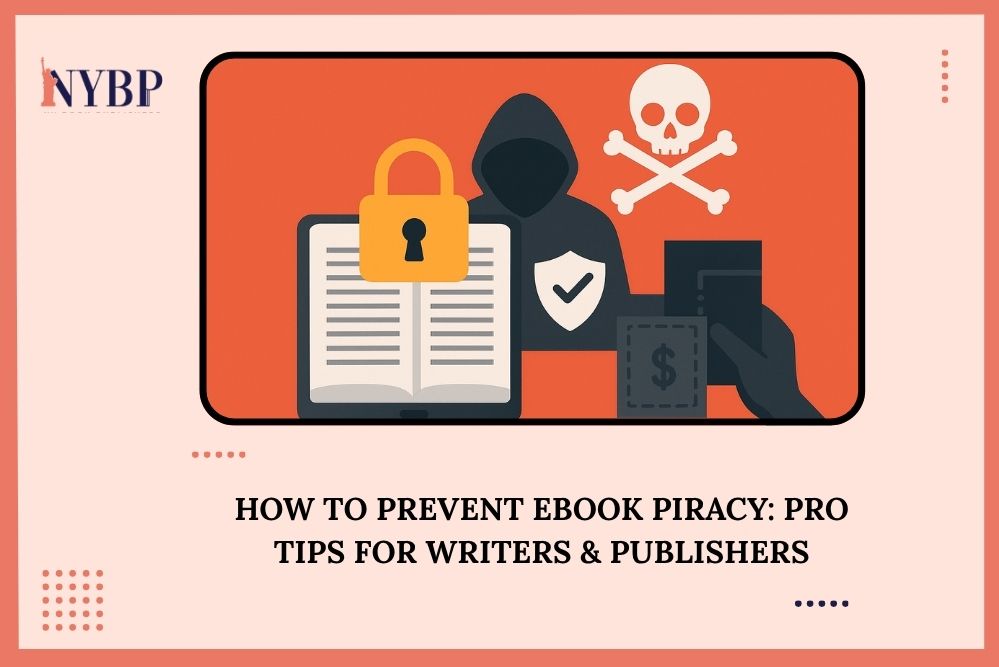Intro
Are you also curious about what it takes to be an author? Asking questions from any author can quench your thirst. It’s just like when you step into high school, and you are at the stage of your life when you need help to pick your majors, and you consult your seniors. Right? Because they are more experienced. So, if you want to be an author and are wondering how you can be a book author too, or you have a book event to attend, or you are working on some client’s book as an editor, interviewing one is a great idea!
You must be thinking, what should I ask from an author? Don’t worry! NY Book Publishers – being the best and most experienced in book writing, we are here to share some exciting questions that you can ask an author about their book. So, without wasting any time, let’s see the list of 30 questions that you can ask from authors easily. To make it simpler for you, we have categorized the questions into different sections. Let’s have a look!
Questions You Can Ask About the Book’s Inspiration:
- What was the inspiration behind writing this book?
- How did the idea for this story first come to you?
- Did any real-life experiences influence the characters or events in the book?
- What message did you hope to convey to your readers through this story?
- How long did it take you to write the book from start to finish?
- What challenges did you face while writing this book?
About the Writing Process:
- Do you follow a specific writing routine or schedule?
- What part of the book was the most enjoyable to write?
- Were there any scenes or chapters you found particularly difficult to write?
- Did you outline the book beforehand, or did you write directly?
- How do you handle writer’s block?
- What tools or resources were essential to your writing process?
You Can Ask About the Book Characters:
- Who is your favorite character in the book, and why?
- Are any of the characters based on people you know?
- What motivates the protagonist of your story?
- Did any characters of yours change in ways that were not expected as you were creating them?
- Are there hidden elements that pertain to the different characters?
About the Plot and Setting:
18. How did you decide on the setting of the book?
19. Did you do any specific research for writing the story?
20. What was the biggest shocker in the story you have written?
21. What are the side plots or themes that you wished to cover more?
22. Have you cut some scenes or ideas out of the final version of the book?
Regarding the Publishing Journey:
23. What, in particular, was the saddest part of getting this book published?
24. How much were you part did you take in the book cover design and marketing process?
25. Did you work with an editor or beta readers? How did their feedback shape the final book?
26. What has been the most rewarding part of publishing this book?
Reader Reception and Reflection Questions:
27. How do you want your readers to be after finishing the book?
28. Any unexpected feedback from readers?
29. What is the one thing that you would change now in the book?
30. What is the most memorable thing a reader has told you about the book?
Let’s discuss each of them in detail.

Questions About the Book’s Inspiration:
1. What was the inspiration behind writing this book?
This question will help you to know what inspired the author to write this book. Their answer will give you the motivation and spark creativity from their experiences and motives.
2. How did you get the idea for this story?
You definitely need an idea to stimulate the plot of your story. This is the 1st and the most difficult step – to have an idea. Asking the author about their motive or idea can also help you to think in the same direction, or if you are working on their book, then asking this question will give you a clear picture of where this story stemmed.
3. Did any real-life experiences influence the characters or events in the book?
When you ask this question, you’ll get insights into how they embed their personal experiences and thoughts in developing the character. By doing this, you’ll get to understand the process of character development and get to know characters very well.
4. What message did you hope to convey to your readers through this story?
If you are working on your client’s book or just interviewing for inspiration, then you must know what message the author actually wanted to deliver to its audience.
5. How long did it take you to write the book from start to finish?
Another important question that comes to every mind is how long it takes to write a book overall. As it includes outlining, book writing, book editing, final drafting, etc. so, asking this question can help you plan your book accordingly.
6. What challenges did you face while writing this book?
Writing a book without any challenge ain’t possible… but listening to other authors’ problems when writing a book and how they solved them can help you find solutions to overcome your book-writing challenges.
Questions About the Writing Process:
7. Do you follow a specific writing routine or schedule?
If you are eager to know how you can complete your book fast or how you can schedule it in your routine, then knowing from any experience can definitely guide you.
8. What part of the book was the most enjoyable to write?
Identify their happiest moments during their book writing process. This will give you some motivation by cherishing the joy and getting to know the author’s invested emotions in the book.
9. Were there any scenes or chapters you found particularly difficult to write?
Asking this question from the author will help you to dig into areas of the story that require extra effort, revisions, or emotional investment.
10. Did you outline the book beforehand, or did you write directly?
The answer to this question will lead you to learn about the author’s approach to writing the book and complete planning versus spontaneous creation.
11. How do you handle writer’s block?
Writer’s block is a common issue faced by writers, and everyone has a different technique to deal with it. By asking this question from the author will help you know their ways of dealing the writer’s block.
12. What tools or resources were essential to your writing process?
Authors use different tools to perfect their books, such as editing, formatting, and designing tools, etc. Asking this question will help you know which tools authors use to stay organized or write books effectively.
Questions About the Book Characters:
13. Who is your favorite character in the book, and why?
You should ask this question from the author to understand which character resembles most with the author and the details behind their favorite character in the story.
14. Are any of the characters based on people you know?
Most of the authors translate the personalities of the people around them into their book characters. Knowing about their characters can help you discover the connection between real-life personalities and fictional characters.
15. What motivates the protagonist of your story?
Another question you can ask is to have knowledge about the main character’s driving force and how it shapes the plot of the story, because, without the protagonist, every story is incomplete.
16. Did any characters of yours change in ways that were not expected as you were creating them?
You need to ask such a question because, at times, during the book writing process, it would seem as though the characters had come alive. They seem to start thinking, acting, or speaking quite differently from what the writer originally had in mind. This is usually because the story within it opens up in a direction that would develop either unexpected occurrences or the personalities of the characters as you write your book. For instance, an insignificant character turns out to be more significant, or perhaps the sinister leader could exhibit a softer side to his nature.
17. Are there hidden elements that pertain to the different characters?
Are you aware that ‘Easter Eggs’ essentially comprise small secrets or surprises the author hides within the story? These could consist of tiny minutiae regarding characters that only keen-eyed readers would be able to note. To give a deep understanding of the book, it can be the name of a character that came from a historical figure, or perhaps there could be some hint of the character’s past hidden in the dialogue or actions.
Questions About the Plot and Setting:

18. How did you decide on the setting of the book?
The setting is how and when the story takes place; different settings fit different moods in a story. For example, a story about scary night happenings might have a setting in the dark forest, while a beautiful city would fit the cases of romance. It is usually the author’s favorite childhood place or something he/she knows well. For fantasy and sci-fi books, the author tries to create a new world altogether.
19. Did you do any specific research for writing the story?
Suppose the book is indeed place-based or some piece of it needs to be very accurate history, science, or culture; then certainly, the author would have spent a considerable amount of time studying those things. For instance, if the story is set in a war, an author may read about battles, the lives of soldiers, and what people used to wear or eat during that time. The other scenario includes fiction books, where research would go into things such as myths or rituals to feel closer to the audience.
20. What was the biggest shocker in the story you have written?
A plot twist means a change but big and unexpected in the story. At times, even the authors might not know it has actually thronged in until they have written it. They might think that the winning hero would easily win, but then, just towards the middle of the plot, they change their minds and decide to make the hero lose first for an exciting plot. They keep it guessing for readers and help it become far more memorable.
21. What are the side plots or themes that you wished to cover more?
Subplots are small stories that are embedded in the main story, like the journey of a side character, whereas themes are grand ideas or messages like friendship, bravery, and so on. Sometimes, authors do not have enough space or time to write these long stories. For instance, a writer might wish that he/she had more about that character’s backstory or had delved even deeper into some big notion of love/loss.
22. Have you cut some scenes or ideas out of the final version of the book?
The author revises his book, taking out bits and pieces that are not in place or that slow down the reading. Entire chapters, characters, or fun ideas could be abandoned for the sake of pacing. For example, if a long scene doesn’t add much to the overall plot, it gets cut even if the author liked it.
Questions About the Book Publishing Journey:
23. What, in particular, was the saddest part of getting this book published?
Book Publishing isn’t easy. Some writers could not find a publisher who believed in their story. If the writer decides to publish it on their own, they’re responsible for editing and printing it. Marketing would have to be done, too. Some rejections and delays might even make it too much work.
24. How much were you part did you take in the book cover design and marketing process?
Some authors can help design a cover for the book or imagine how to promote it. Others might leave all this to professionals. Authors are more likely to become involved when suggesting certain colors, symbols, or scenes for the cover or making up book signings and other book marketing strategies to attract readers.
25. Did you work with an editor or beta readers? How did their feedback shape the final book?
Editors help polish the book by pointing out mistakes and suggesting changes so that the end product is better. Beta readers are those who have read the book in its early stages and then comment on it. Their feedback may give the author an insight into what works and what does not. For example, a beta reader may say something like, ‘that character feels unrealistic,’ forcing the author to change that.
26. What has been the most rewarding part of publishing this book?
For most authors, the most rewarding moment is seeing all that effort come to life and hearing from readers who loved the book. This could be when one first holds the book in their hands, or it could be when someone tells the author that the book inspired or helped them.
Reader Reception and Reflection Questions:
27. How do you want your readers to be after finishing the book?
Most authors wish for some deep feeling to wake the readers after having read their works. It seems most of them hope to be inspired or comforted or inclined to think differently about the world. For instance, quite in a mystery book, a reader might want to leave the pages feeling astounded by a clever close.
28. Any unexpected feedback from readers?
Sometimes, the understanding of the readers could be much further and much different from what was intended by the author. Like, the reader might interpret a scene as something deeper than what the writer had originally conceived, or it has much more resonating power to the character than what the author had intended. It is exciting and sometimes surprising for the writer.
29. What is the one thing that you would change now in the book?
Some writers look at their works critically after the book is brought to the market and find that there are things they would like to improve in it. Probably a little Chapter added, the character developing further, or some small mistake fixed. That shows that the writers continue learning and maturing.
30. What is the most memorable thing a reader has told you about the book?
When the readers highly personalize what they create or elicit in the book, they may tell the authors about the book, helping them get through difficult times or motivating them to chase their dreams. Such moments push authors into why they write.
Hoping this list of 30 questions to ask an author about their book from NY Book Publishers’ experts will give you insights into authors’ inspirations, creative process, as well as the hard times making them into the stories. Indeed, the conversation can be food for thought and a stimulus to the budding writer, editor, and interested reader alike.
Closing
The benefit of hearing how an author copes with anything from writer’s block through the unexpected twist in the plot to dealing with the editor is that it might inspire you and offer practical points on the same for your own projects. These moments also provide an insight into the emotional investment behind every story and the joy that it brings to an author when their work touches readers’ lives. Every book carries a part of its author’s imagination, effort, and heart. By engaging in these discussions, one better understands the book and appreciates much more about book writing and publishing. So, don’t hesitate to ask answer; it could be a spark to your own creativity!





